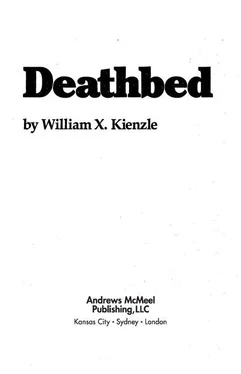* * *
It was early enough so that Harison was able to find a parking space on Woodward, across from Orchestra Hall, site of tonight’s concert.
Groendal strode through the lobby as if he owned the Hall. Harison, following closely in his wake, presented the tickets—two on the aisle—as had been the case these many years they had been attending first-nights.
The two men immediately became the center of attention of the few patrons who had arrived early.
Harison, of moderate height and build, was distinguishable by a nearly completely bald pate from which erupted two significant side tufts of hair, making him most resemble Clarabelle the Clown, of “Howdy-Doody” fame.
Groendal, still impressive and distinguished, despite his ominous weight loss that gave him a haggard appearance, was tall, with a heavy head of salt-and-pepper hair. A dark blue suit fit him rather well since it had been recently purchased. He slipped off his black overcoat and draped it over one arm as he advanced to his down-front seat.
Groendal was easily and readily recognized because, unlike most other critics, his self-promotion machine was always well-oiled. His flamboyance in word and deed, along with his photo, was (at his insistence) well-publicized.
As the two men settled in, Groendal began studying his program. “Look at this, will you?” He did not bother lowering his voice.
Harison paged through his program. He glanced at the offerings, but said nothing, waiting for Groendal’s inevitable comment.
“Octets by Schubert and Mendelssohn and a quintet by Beethoven,” Groendal noted quite loudly. “Can you imagine that? Schubert, Mendelssohn, and Beethoven! Romantics! Romantics! Romantics! It just goes to prove the point I’ve been making over and over: David Palmer has not yet entered the twentieth century!”
The thought crossed Harison’s mind that it was possible that the Schubert, Mendelssohn, and Beethoven would be well performed. But he did not bother saying so. He knew that his friend had selected his target for the evening and was already composing his review.
However, Harison knew he was expected to play a docile devil’s advocate. Over the years, the role he played opposite Groendal had become so defined as to be routine.
“Now, Rid, you know how difficult it is to get audiences to accept some of the modern composers. Maybe Palmer doesn’t think Detroit is ready for Schönberg and Ives. After all, he’s got to try to fill this place.”
“Nonsense! The way to do it is to tuck them in. All right, have your Mendelssohn and Beethoven, or your Schubert and Mendelssohn, but drop Bartók in there. The reason the expressionists, the atonals, the minimalists, haven’t caught on is that cowards like Palmer shy away from them. Detroit will never grow up until people like Palmer are driven out of positions of leadership!”
That was enough. Harison had played his part in this oft-repeated scenario. He knew he was right. This was the first century in which, with rare exception, the composers of that century were not performed. In Mozart’s day, they played Mozart. In Beethoven’s era, they played Beethoven. And of course the masters were still extremely popular. But avant-garde composers of varying degrees of daring-such as Schönberg, Cage, Bartók, and Ives—seemed to appeal mainly to other modern composers. It was as if today’s composers of serious music were writing for each other. Certainly not for the general public, which largely shunned them.
So it was a form of artistic suicide to schedule the moderns, particularly in a program of already limited appeal such as tonight’s chamber concert.
No doubt about it: David Palmer, leader of the Midwest Chamber Players, was in for it. Harison knew Palmer would be blasted for, among more basic reasons, daring to offer three Romantic composers on the same program with nary a bow to the twentieth century.
But it didn’t really matter what the provocation might have been. Maestro Palmer would have gotten a nasty notice in any case. That was Ridley C. Groendal. To know him was not necessarily to love him. That was an accomplishment of Peter Harison—and few others.
* * *
“Uh-oh . . . take a look out there!” Cellist Roberta Schwartz beckoned David Palmer to the peephole.
“Who is it?” Palmer asked. “Oh, never mind; I can tell from your tone: It’s the gargoyle, isn’t it?”
“And early, too.”
“Naturally. He wouldn’t want anyone to miss the fact that he’s arrived. Groendal—either early or a late grand entrance—you can depend on it . . . the News or Free Press here yet?”
Roberta moved her head from side to side to scan the panorama of the hall. “No, not yet. But why should they be: They’re normal.”
She moved away from the peephole so Palmer could use it.
“Uh-huh.” Palmer squinted through the small opening. “There he is, the old fart, already making notes in his program. I mean, how can you review a concert before the damn thing begins?”
“I wonder how we did.”
Despite his foreboding, Palmer smiled. “Not well. On that you can depend. I wonder what we did wrong this time?”
“This is only a guess—God knows Groendal could write anything as long as it’s so filled with jargon that no one can comprehend it—but if he’s writing before we begin, I’ll bet he doesn’t like the program.”
“That sounds a little too logical for Groendal.”
“Just for safety’s sake, you wanna tuck in a little Stravinsky?”
“Not unless you want everyone to leave at intermission and not come back—ever!”
“Just asking.”
“Let’s just give it our best shot. At least we can hope the two dailies will be honest and maybe even objective. Besides, I’m afraid I insured us a really rotten review from Groendal.”
“That couldn’t have been hard. Most people can get a really rotten notice from him without trying at all. What could you have done besides become leader of this group?”
“I sent him a note . . . a letter.”
“Conciliatory, I hope.”
“’Fraid not. I really told him what I think of him and his so-called expertise. And I added a little personal message that should have set his teeth to grinding.”
“I guess it wouldn’t matter; in the final analysis we’re all going to get it eventually. Oh, well, maybe we’ll get lucky: Maybe your note will upset Groendal so much that he’ll just up and drop dead. He does have high blood pressure, you know.”
“And heart problems too.” Palmer seemed uncomfortable. “I must admit the thought has crossed my mind. What a service to humanity if someone could eliminate him! Maybe it could be done by making him so damn mad he’d explode.”
He wrinkled his nose. “I don’t think my note worked though. I sent it quite a few days ago and . . . well, there he is: ready to stick his stiletto into us and twist it.”
“Oh, don’t give up hope. You know how backed up the mail gets at Christmastime. Maybe the post office hasn’t delivered your message yet. So maybe Groendal hasn’t read it yet.” She grinned. “Maybe you’ll kill him yet.”
The very real possibility that he might be able to bring about Groendal’s death, or at very least his removal from the artistic scene, had occurred more than once to Palmer. The prospect made him almost giddy. There was little doubt that eliminating Groendal from the critic’s chair would be hailed as a noble deed.
Well, in any case, it had not worked. For there he was—or rather, there they were, Batman and Robin. The Midwest Chamber Players would perform Beethoven, Mendelssohn, and Schubert, and would perform them very well. After which the group would be massacred by Ridley C. Groendal. It was foreordained.
Читать дальше












